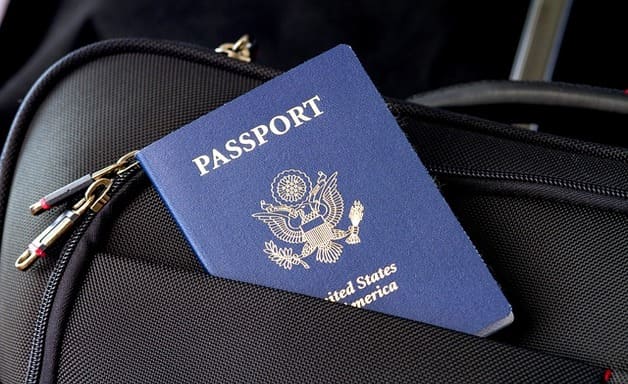
Planning a trip to Bali, Indonesia? There are several visa types available, depending on how long you want to stay and your reason for visiting.
In recent years, the names of visas for Bali have been changed, causing confusion amongst travellers. In this post, we’ll clearly outline Bali’s most popular visas for visitors, including:
- Visa on arrival (VoA)
- Visit visa C-type
- Long-term multiple entry visa
You’ll also find the key details on how to apply for your visa, and other essential documents you need to travel to Bali.
Who needs a visa for Bali?
Travellers from most countries need a visa to visit Bali, even for short stays. Only citizens of ASEAN member states, Colombia, Hong Kong, Timor-Leste, and Suriname can visit visa-free.
The type of visa you need depends on the purpose of your visit, your nationality, and how long you want to spend in Bali. Choose the most suitable visa for your trip and personal circumstances.
Remember: Bali is a region of Indonesia., so your visa will be valid for all parts of the country. All foreign travellers arriving in Bali must pay the Tourist Tax, whether they need a visa or not.
Visa rules for transit passengers
If you’re transiting through Ngurah Rai International Airport (DPS) in Bali, you must get a visa unless you’re a citizen of a visa-exempt country.
This applies even if you will not leave the airport during your stopover. Other airports in Indonesia do not have this requirement. Check what’s required by your layover airport before you travel.
Bali visa on arrival
The visa on arrival (VoA) is one of the most popular options for short-term visitors to Bali. It allows you to stay for up to 30 days.
There are 4 types of VoA, depending on your reason for visiting Bali:
- B1 – Tourism, or visit friends and family
- B2 – Business, meetings, or to purchase goods
- B3 – Medical treatment
- B4 – Government affairs
It’s a single entry permit, meaning you can only enter the country once during the visa’s validity period. Once you’ve arrived, you can extend your VoA for an extra 30 days, whichever subcategory of visa you have.
Bali VoA updates
The VoA is also known as the visit visa, e-VoA, or tourist visa for Bali. It was originally only available on arrival in Indonesia, but is now available online.
This has caused a lot of confusion for travellers researching which visa is needed for Bali, and how to get it.
If you want to stay for less than 60 days, you’re recommended to apply online for a VoA before you travel. This will save you time on arrival, and give you peace of mind that your visa has been pre-approved.
How to get your VoA for Bali
You can apply for your Bali VoA online in the 14 days before your trip. The process is 100% online, and you’ll receive your approved visa by email. Carry a printed copy to show once you arrive in Indonesia.
You can also request one on arrival at immigration counters at international airports, or at a harbour if you’re travelling by boat or cruise ship. Bali’s Ngurah Rai International Airport has this service available.
Eligibility requirements
Citizens of more than 90 countries are eligible to apply for the VoA for Bali. This includes all EU member states, the UK, the US, Australia, Canada, and New Zealand.
To apply, you must provide some personal details, an ID-style photo, and proof of onward travel bookings, like a return flight. Your passport must have at least 6 months’ validity from your arrival date.
Bali visit visa C-type
The Bali visit visa C-type was previously known as the 211A visa. It’s designed for travellers who want to spend more time in the country.
Depending on your reason for travel, there are 4 subcategories of the C-type visa for Bali:
- C1 – Tourism
- B2 – Business
- B3 – Volunteering
- B4 – Investment
You’ll initially be granted permission to enter Indonesia for up to 60 days. This can be extended for a maximum stay of 180 days. The C-type is single entry, so you cannot leave and come back with the same visa.
How to get your C-type visa for Bali
To get the visit visa C-type, you must apply online before travelling to Bali. It’s not possible to request this type of visa once you’ve arrived.
The application is completely electronic — there’s no need to visit an Indonesian embassy. If approved, you’ll receive an email confirmation of your C-type visa. You must bring a printed copy when you travel for inspection by border officials.
Eligibility requirements
Citizens of almost all countries can apply for a C-type visa for Bali. It’s also open to travellers using refugee travel documents, or temporary passports.
You’ll need to provide bank statements showing at least USD 2,000, or equivalent, over the previous 3 months when making your application.
Long-term visa for Bali
The long-term visa for Bali is sometimes called the multiple entry, or D1/D2 visa. It’s best tailored to frequent visitors to Bali, especially if you make short trips several times a year.
There are 2 subtypes of the multiple entry visa:
- D1 — Tourism, or visiting friends and family
- D2 — Business negotiations, meetings, or purchasing goods
Your long-term visa for Bali is valid for 12 months. It cannot be extended — you must apply for a new visa once it expires.
You’re allowed to make multiple trips to Indonesia while your long-term visa is valid. Each visit is limited to 60 days. However, if you need to stay for longer, you can apply for an extension for a maximum stay of 180 days.
How to get your long-term visa for Bali
It’s not possible to apply for your long-term visa once you’ve arrived in Bali. You must make the application online before you travel.
Once you’ve received approval, you can travel to Bali. Make sure to bring a printed copy of your visa. You must make your first trip within 90 days of the issue date.
Eligibility requirements
To apply for your long-term visa for Bali, you must hold a passport that’s valid for at least 6 months. You’ll also need to provide bank statements showing at least USD 2,000 to cover your living expenses, and a recent colour photograph.
Applications are open to almost all nationalities, excluding travellers who require an embassy visa for Bali.
Note: If you’re travelling for business purposes, you can participate in meetings, contract negotiations, and other similar activities. However, you cannot receive wages from any Indonesian corporations, or sell any goods or services.
Embassy visa for Bali
Though electronic visas are available to citizens of most countries, not all travellers are eligible. If you hold a passport from one of the following countries, you must apply for an embassy visa:
- Afghanistan
- Cameroon
- Guinea
- Israel
- Kosovo
- Liberia
- Nigeria
- North Korea
- Somalia
- Syria
Citizens from these nations are not eligible for any type of online visa for Bali. Instead, you must contact your nearest Indonesian embassy to process your visa request.
Additional travel documents required for Bali
Indonesia has several mandatory entry documents for foreign travellers. They’re required on arrival, in addition to your visa and passport. Here are the key details on what you need to visit Bali.
Bali Tourist Tax
The Bali Tourist Tax was introduced to help fund environmental and cultural preservation efforts. It’s a requirement for all foreign tourists visiting the island.
It’s possible to pay the levy on arrival, but most travellers prefer to save time by making the payment online before travelling. With Bali Tourist Tax Go, it only takes a few minutes to complete.
Indonesia Customs Declaration
All visitors to Bali and other regions of Indonesia are required to fill out an electronic customs declaration (e-CD). It’s obligatory for all travellers, whether you’re visiting for business, tourism, or to see friends and relatives.
To complete your e-CD online, you’ll be asked to provide details of the items you’re carrying into Indonesia. Once completed, you’ll receive a QR code via email to show customs officers on arrival.


